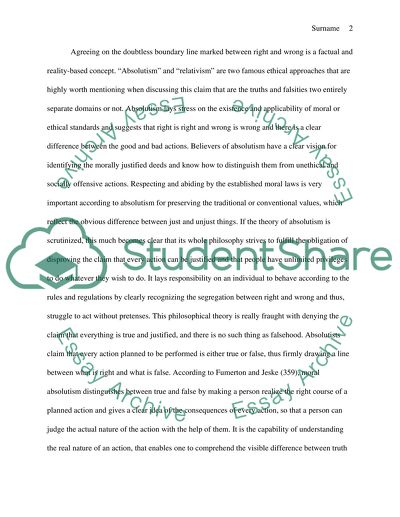Cite this document
(Distinctions between What is True and What is False Essay, n.d.)
Distinctions between What is True and What is False Essay. Retrieved from https://studentshare.org/philosophy/1571428-therearenoabsolutedistinctionsbetweenwhatistrueandwhatisfalsediscuss-this-claim
Distinctions between What is True and What is False Essay. Retrieved from https://studentshare.org/philosophy/1571428-therearenoabsolutedistinctionsbetweenwhatistrueandwhatisfalsediscuss-this-claim
(Distinctions Between What Is True and What Is False Essay)
Distinctions Between What Is True and What Is False Essay. https://studentshare.org/philosophy/1571428-therearenoabsolutedistinctionsbetweenwhatistrueandwhatisfalsediscuss-this-claim.
Distinctions Between What Is True and What Is False Essay. https://studentshare.org/philosophy/1571428-therearenoabsolutedistinctionsbetweenwhatistrueandwhatisfalsediscuss-this-claim.
“Distinctions Between What Is True and What Is False Essay”, n.d. https://studentshare.org/philosophy/1571428-therearenoabsolutedistinctionsbetweenwhatistrueandwhatisfalsediscuss-this-claim.


